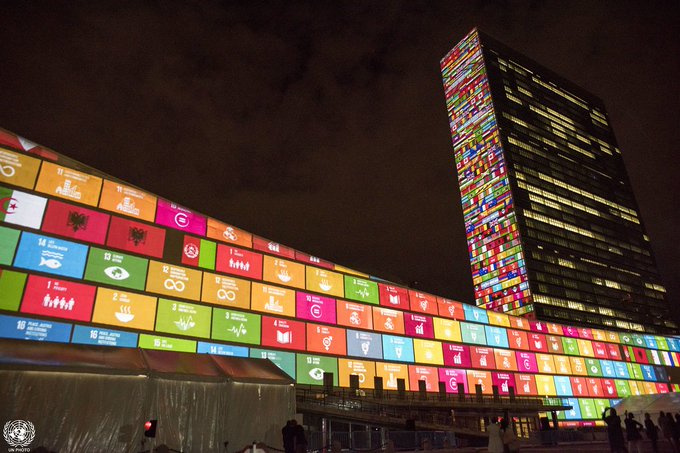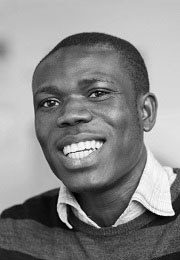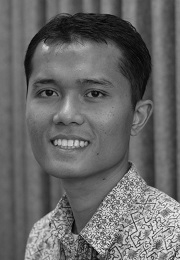
By Hiwot Alemayehu, Rachel Hayman, Emmanuel Kumi, Ibnu Mundzir and Brian Pratt
In 2013 we published a blog by Brian Pratt, called ‘Eight Challenges for Civil Society in 2013’. For many years it has been a very popular piece, and as 2020 gets underway we felt that the issues it raised needed revisiting. So, we gathered reflections from a few INTRAC consultants from different countries, getting their perspectives on what 2020 has in store for civil society.
Emmanuel is based in Ghana, Ibnu in Indonesia, Hiwot in Ethiopia, and Rachel and Brian in the UK.
Political change and the opening and closing of civil society space
Rachel: “The views from Emmanuel, Ibnu and Hiwot are a stark reminder of how space for civil society constantly changes with the political tides in both positive and negative ways. As we face another year of political uncertainty in the UK and across Europe, with the European Union project under pressure amid the rise of populist and nationalist voices, civil society needs to keep fighting hard to promote the values of social democracy.”
Emmanuel: “In many West African countries, CSOs are under constant pressure in recent years. Governments across the sub-region are using a number of strategies, tactics and instruments to supress civic space. Shrinking civic space is expected to continue, especially in countries such as Burkina Faso, Ghana, Mali, Guinea, Ivory Coast and Niger that will have presidential and parliamentary elections in 2020. This has the potential to undermine the ability of CSOs to generate much-needed social capital, undertake political advocacy and mobilise citizens’ participation in democratic governance.”
Ibnu: “The winter is coming for civil society in Indonesia. The newly elected government that will serve until 2024 focuses on economic growth and job provision. It shows weak commitment on human rights protection, corruption eradication and environmental protection. In 2019, some environmental, anti-corruption and human rights activists suffered from physical abuse and criminalization. Civil society in Indonesia is also affected by the electoral divide created by the 2019 presidential election, where criticizing the elected government is often seen as a support to another candidate.”
Hiwot: “Despite the long history of civil society in Ethiopia, there has never been a time where civil society sector fully manifested itself as a watchdog and catalyst. Several opportunities for social change were missed due to the lack of capacity of CSOs, the politically charged environment and an underestimating of civil society roles. For nearly a decade, civil society organizations, particularly those focused on rights-based programmes, faced an extremely exasperating time because of the restrictive Civil Society Proclamation. Most organizations laid off staff and had difficulty working with the Civil Society Agency. However, in the past few months, a new atmosphere of relative freedom came about with the reform process that revised the Proclamation. Consequently, survival mode has altered to a spirit of new possibilities. In 2020, CSOs not only will secure funding for new projects particularly on rights-based issues, but also will learn from their past and ensure that they have a stronger collective voice.”
Brian: “2020 is going to be a year of different and often contradictory trends. We are facing many negative trends. In several countries autocratic leaders are trying to establish themselves as leaders for life. In Western countries, in what were regarded as stable democracies, we have the emergence of bombastic leaders who build their governments on lies, media manipulation, and attempts to undermine their legal and constitutional systems. The rise of some negative forms of nationalism, including religiously-based system, are redolent of the 1930s, with an undermining of democracies and minority rights in favour of ethnic and religious groupings. However, anti-civil society governments are not having it all their own way and we have seen the removal of dictatorial leaders in Sudan, Zimbabwe, Malaysia, and attempts in places such as South Africa to counter corruption and re-establish democratic norms.”
Civic activism and the challenge to INGOs
Ibnu: “Despite the political winter in Indonesia, civil society also has some promising opportunities. We witness increased activism from the youth, particularly university students, demanding clean and accountable government. A student demonstration supporting the anti-corruption movement in 2019 was the biggest demonstration in Indonesia since the fall of Soeharto, an authoritarian president who served for 32 years, in 1998. Technology-savvy millennials show creative approaches to solving community problems using new technologies.”
Brian: “Back in 2013 I was wondering what the alternative narratives might be. As we enter 2020 we face a very mixed set of alternatives. On the more pessimistic side, we see the continued increase and consolidation of autocratic governments which constrain and suppress democracy through physical and legal attacks on citizens generally and civil society specifically. On the positive side, we see the emergence of youth-led opposition to such repression, as well as young people questioning orthodoxies, political regimes and the inactivity of authorities on such major issues as corrupt politics and climate change and its effects. However, it still feels that at times more traditional civil society groups are lagging behind these newer youth led movements, struggling to reinvent themselves as they tackle issues of trust and credibility. And although thinkers might be reflecting on the nature of contemporary capitalism, questioning how our economic systems can accept and adapt to the failures of global capitalism that are leading to climate change, increased poverty and inequalities in rich and poor economies alike, there still does not seem to be a clear alternative emerging.”

Photo: UN Photo/Cia Pak License: https://creativecommons.org/licenses/by-nc-nd/2.0/
Funding civil society to tackle universal development problems
Emmanuel: “Another potential challenge that CSOs will face in 2020 relates to aid reduction and shifting donor priorities. While these are not new, shifts in donor priorities and modalities are expected to have a profound impact on the activities of CSOs and their beneficiaries, especially those that are highly dependent on external donor support. For instance, some donors are aligning their funding priorities towards the Sustainable Development Goals (SDGs) and climate change which would also require CSOs to shift their focus and programmes. This has important implications for CSOs and their beneficiaries. Shifting donor priorities and aid reduction also present opportunities, including the ability of CSOs to mobilise domestic resources and become more accountable and legitimate in the eyes of their constituents. These issues will continue to take centre stage in discussions of the future of CSOs.”
Ibnu: “A growing Muslim middle class is leading to increased financial support for social causes channelled through Islamic philanthropic organizations. Government is also increasing development funds channelled directly to village level government.”
Rachel: “The first challenge on Brian’s list in 2013 was the pattern of withdrawal of official aid from many countries. This trend continues, with more evidence coming to the fore of the impacts on human rights-focused organisations in particular. However, 2020 is likely to see ongoing innovations in the funding of action to tackle ‘universal’ development challenges such as poverty, inequality, gender-based discrimination and violence, and climate change, and hopefully will see a continued drive to tackle inequalities in the aid system itself.”
Championing collective efforts and collaboration
Hiwot: “If I must prioritize for 2020, creating capacity of each organization is critical. The importance of this comes and goes with the value that a strong organization brings in creating a sustainable platform for collective efforts. Such measures will enable civil society to become a watchdog and catalyst to contribute positively to the nation-building process and development, something which was largely lacking in the recent transition period in Ethiopia when the role of civil society was insignificant beyond an involvement in revising the Civil Society Proclamation. All efforts for collective voice needs to be supported. One way would be through the Civil Society Council that has a role in regulating the sector through a code of conduct.”
Emmanuel: “Shrinking civic space provides opportunities for CSOs to forge cross-sector collaborations, networks and alliances with other stakeholders. Therefore, efforts to promote cross-sector collaborations among CSOs and other stakeholders in countries facing shrinking civic space should become a priority for capacity building providers and supporters.”
Strengthening the capacity of civil society to seize opportunities
Hiwot: “Capacity building providers need to understand the new landscape and new possibilities. The critical step is to enable civil society to gain its confidence back and gain momentum to ensure that space gets wider. The space created by the new Proclamation is expansive, but it requires a new paradigm. Equally important is support from capacity providers to ensure that skills and technical capacity are available to seize the opportunity. Capacity building can be a joint venture between national and international providers and needs to be context-specific and tailored. In addition, a long-term capacity building project with clear goals and monitoring and evaluating mechanisms would be a suitable approach.”
Ibnu: “With the aforementioned challenges and opportunities, civil society capacity building providers should extend their support to rising youth groups, Islamic philanthropic organizations, and village level government for better programme management. To reach youth digital movements, capacity building providers should learn to use information and communication technology and social media platforms. The capacity building providers can support village governments to be more accountable in managing village funds and in facilitating community participation. In addition to ‘safe’ technocratic services, capacity building providers should support civil society consolidation, increase democratic space, and advocate for values such as human rights protection and respect for diversity.”
Rachel: “Despite all the turmoil around us, it looks like 2020 will be a good year for reviewing how we can work with civil society all around the world to take on new challenges and opportunities. I’m really excited about INTRAC’s work plan for this year, which will see us engaging with an ever expanding group of fantastic consultants and capacity building partners based in different countries on a range of training, learning and research initiatives.”
About the authors

Hiwot Alemayehu is a leadership and capacity development consultant based in Addis Ababa, Ethiopia with significant experience in civil society capacity development in Ethiopia, Ghana, Sudan, South Sudan and United Arab Emirates.

Rachel Hayman joined INTRAC in 2011. She worked for five years in the world of European policy-making and cooperation programmes, followed by ten years in academia specialising in international development with a geographic focus on sub-Saharan Africa.

Emmanuel Kumi is an experienced researcher and development practitioner with over 10 years working experience in the field of civil society financing and resource mobilisation.

Ibnu Mundzir is a monitoring and evaluation (M&E) and capacity building consultant with 15 years’ experience in the civil society sector in Indonesia.

Brian Pratt has 40 years experience of working in international development. His research and policy development expertise encompasses poverty reduction, aid policies, aid flows and aid architecture.
To keep up with all of INTRAC’s news and developments in 2020 and beyond, be sure to sign up to our mailing list today.